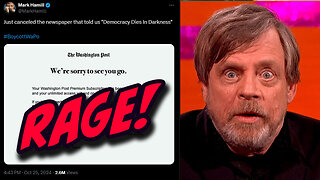Kary Mullis and the Unsettling Intersection of Science, Power, and Public Perception
Kary Mullis, Nobel Prize-winning biochemist and inventor of the polymerase chain reaction (PCR), was known for his fearless critiques of the scientific establishment. His controversial views, particularly on figures like Dr. Anthony Fauci, reveal a complex tension between scientific integrity, authority, and public health narratives. Mullis’s story, combined with his criticism of “administrative” scientists, raises compelling questions about the structures governing modern science and the delicate balance between innovation and conformity. Here’s a look at Mullis’s insights and how they challenge mainstream science.
Mullis’s Groundbreaking Discovery: The PCR Revolution
PCR, Mullis’s discovery, revolutionized molecular biology, enabling the replication of DNA sequences for a range of applications from genetic research to forensic science. This tool magnifies minuscule DNA samples into quantities sufficient for analysis, forming the backbone of genetic and diagnostic testing. Mullis’s work transformed scientific research, but it also became a focal point for his skepticism of its misuse. Mullis contended that while PCR is a powerful tool for detecting the presence of DNA, it cannot quantify viral load or prove causation in infectious diseases—points often misunderstood or misapplied by the wider medical community.
Skepticism Toward Scientific Authority: Mullis vs. Fauci
Mullis’s skepticism extended beyond PCR, criticizing how scientific methods are applied and interpreted. In interviews, he expressed disdain for Dr. Anthony Fauci and other prominent health officials, whom he viewed as administrators rather than practicing scientists. Mullis argued that these figures lacked hands-on scientific knowledge, yet held disproportionate influence over public health policies. He noted that scientists with minimal expertise in specific fields are often positioned as authorities, crafting policies that may not align with evidence-based science.
Mullis’s critiques weren’t solely directed at individuals like Fauci; he also took issue with institutional biases that favor consensus over questioning. To him, the conflation of administrative power with scientific expertise led to a system where true innovators were often sidelined, and groundbreaking research was met with resistance if it didn’t align with prevailing agendas. This pattern, Mullis argued, prevents genuine scientific advancement, reducing science to a tool for reinforcing established narratives rather than pursuing truth.
Challenging the Cholesterol Paradigm and Vitamin C Research
Mullis was not alone in his concerns. He pointed to Nobel laureate Linus Pauling as an example of a brilliant mind marginalized for challenging mainstream medical beliefs. Pauling’s research on high-dose vitamin C as a treatment for cancer faced fierce opposition, even as preliminary studies indicated potential benefits. Despite his credentials, Pauling’s findings were dismissed, his funding was cut, and his reputation suffered.
Mullis observed similar patterns in other fields, such as the shifting cholesterol guidelines. Decades ago, a cholesterol level of 300 was deemed normal; today, levels above 200 are considered risky. Mullis and other scientists have questioned the rigid, one-size-fits-all approach to cholesterol management, noting that cholesterol is essential for brain health, hormone production, and immune function. Mullis saw these ever-tightening guidelines as part of a broader tendency in medicine to reduce complex biological systems to oversimplified metrics, often influenced by pharmaceutical interests.
The Politicization of Scientific Consensus
Mullis’s concerns highlight the dangers of conflating scientific inquiry with institutional authority. He believed that true science requires an environment that encourages dissent and debate, yet he observed a trend toward silencing nonconformist voices in favor of institutional consensus. Mullis’s critique of consensus-driven science draws attention to the political dimensions of scientific funding and the pressures on scientists to align with accepted views or risk losing credibility and support.
Mullis argued that science should be a tool for exploration, not a vehicle for validating pre-existing beliefs. By prioritizing political agendas over scientific rigor, he believed the field risks eroding public trust. When health officials present shifting guidelines without transparent discussion, it fosters public confusion and diminishes science’s credibility, particularly among those already skeptical of government and institutional motives.
Legacy and Lessons: Mullis’s Call for Critical Thinking
Mullis’s untimely death in 2019 left a void in public scientific discourse. His skepticism and critiques challenge us to reevaluate our assumptions about science, particularly in an era where complex scientific concepts are distilled into soundbites. Mullis’s legacy serves as a reminder that scientific progress relies on diverse voices, open debate, and a commitment to questioning, even when doing so disrupts mainstream narratives.
Mullis called for a science that’s driven by curiosity, transparency, and humility, warning that when science becomes indistinguishable from institutional power, it risks alienating the very public it seeks to serve. In a world where scientific literacy is increasingly critical, his insights encourage us to think critically, question authority, and remain vigilant in preserving science’s integrity.
Mullis’s story is more than a critique of a few figures or guidelines; it’s a call to uphold the true spirit of scientific inquiry in the face of institutional pressures. His skepticism, while often controversial, underscores the importance of open dialogue and the dangers of conflating authority with truth.
-
 29:43
29:43
Clownfish TV
17 hours agoJournalists RAGE QUIT WaPo and LA Times Because Owners WON'T Endorse Harris?!
83612 -
 12:06
12:06
Space Ice
1 day agoRings Of Power S2 - Because Amazon Hates You Pt. 2
1.3K16 -
 54:20
54:20
hickok45
5 hours agoSunday Shoot-a-Round # 252
9273 -
 1:02:23
1:02:23
Trumpet Daily
1 day ago $4.28 earnedKamala’s ‘Perfect’ Campaign - Trumpet Daily | Oct. 25, 2024
2.53K36 -
 5:41:11
5:41:11
KDArsenal141
14 hours agoCall of Duty Black Ops 6 Multiplayer Grind #1
30K1 -
 3:00:49
3:00:49
Tundra Tactical
16 hours ago $76.88 earnedThe Worlds Okayest Gun Live Stream! Tundra Nation Live
89K7 -
 5:40:00
5:40:00
FRENCHY4185
18 hours agoBLACK OPS 6 IS HERE !!! CAMO GRIND
94.5K8 -
 2:56:45
2:56:45
NoahsARCrescue
14 hours ago $43.73 earnedAnimals fed and put to bed. Let's stroll! // Animal Rescue Stream
87.3K6 -
 1:55:03
1:55:03
VoltsThoughts
14 hours agoFirst Stream! #MAGA #diablo4 Come hang out!
83.2K8 -
 4:04:10
4:04:10
SquarelyNick
15 hours ago $26.78 earnedNew Streamer - Drop a Follow!
87.8K1